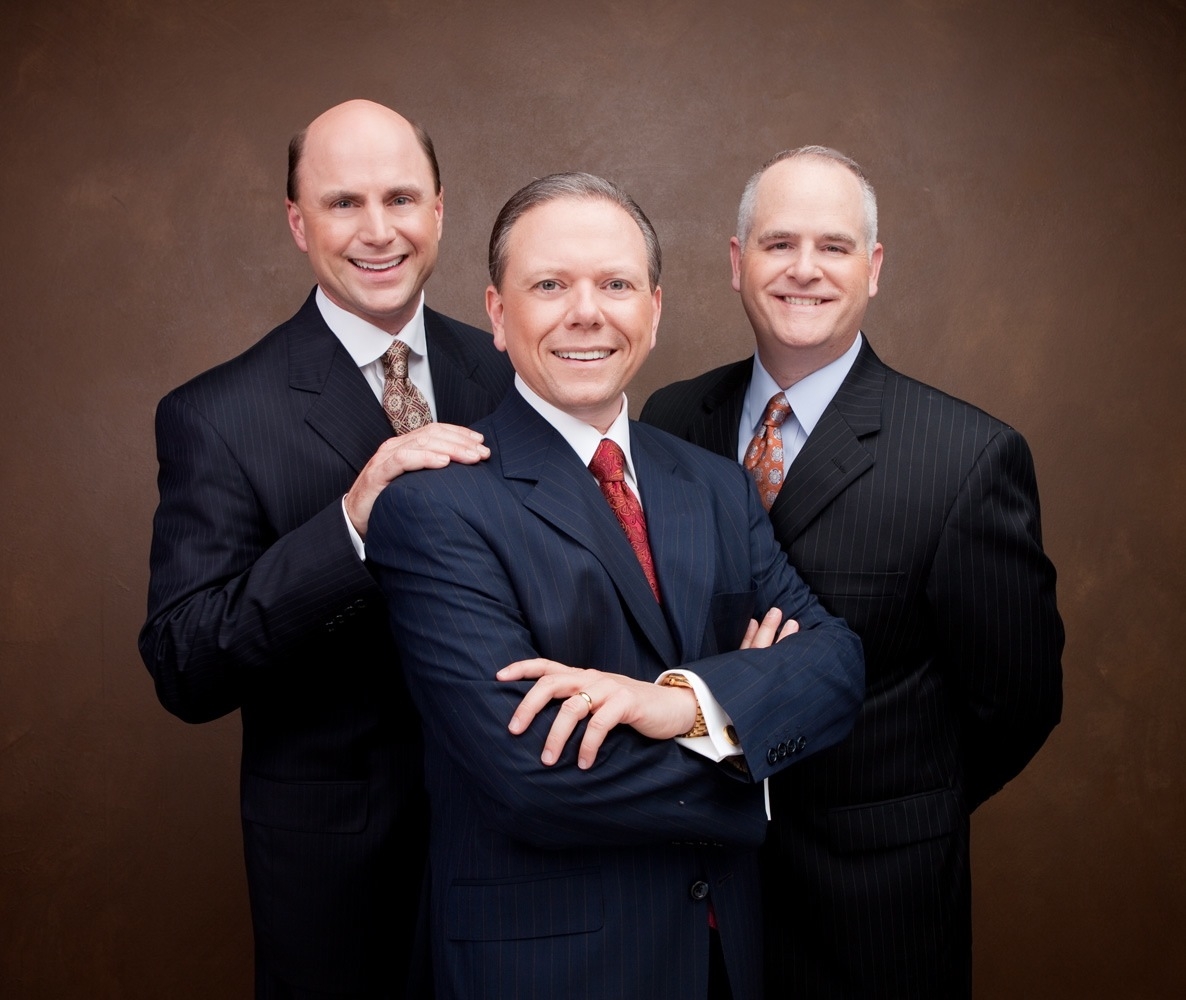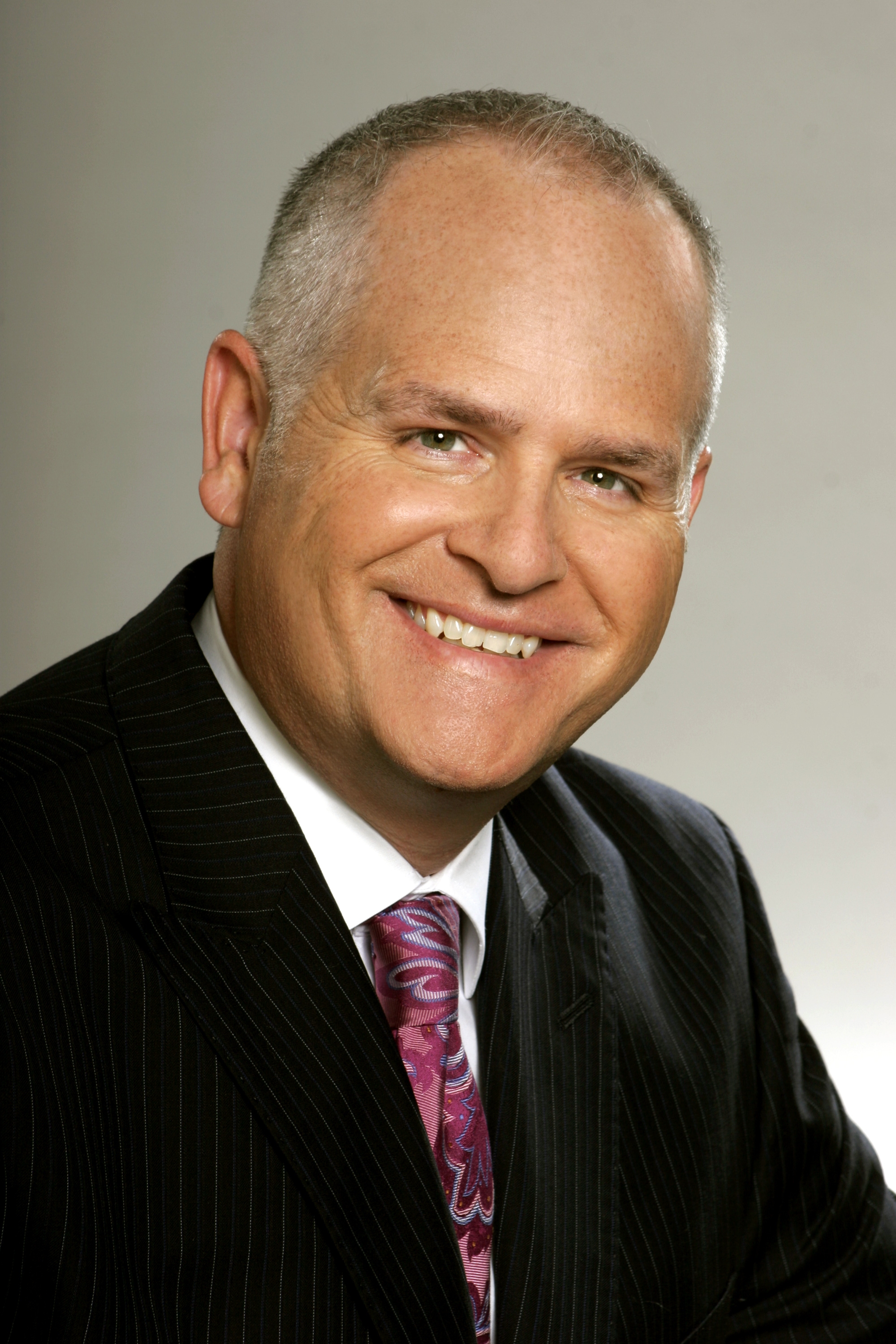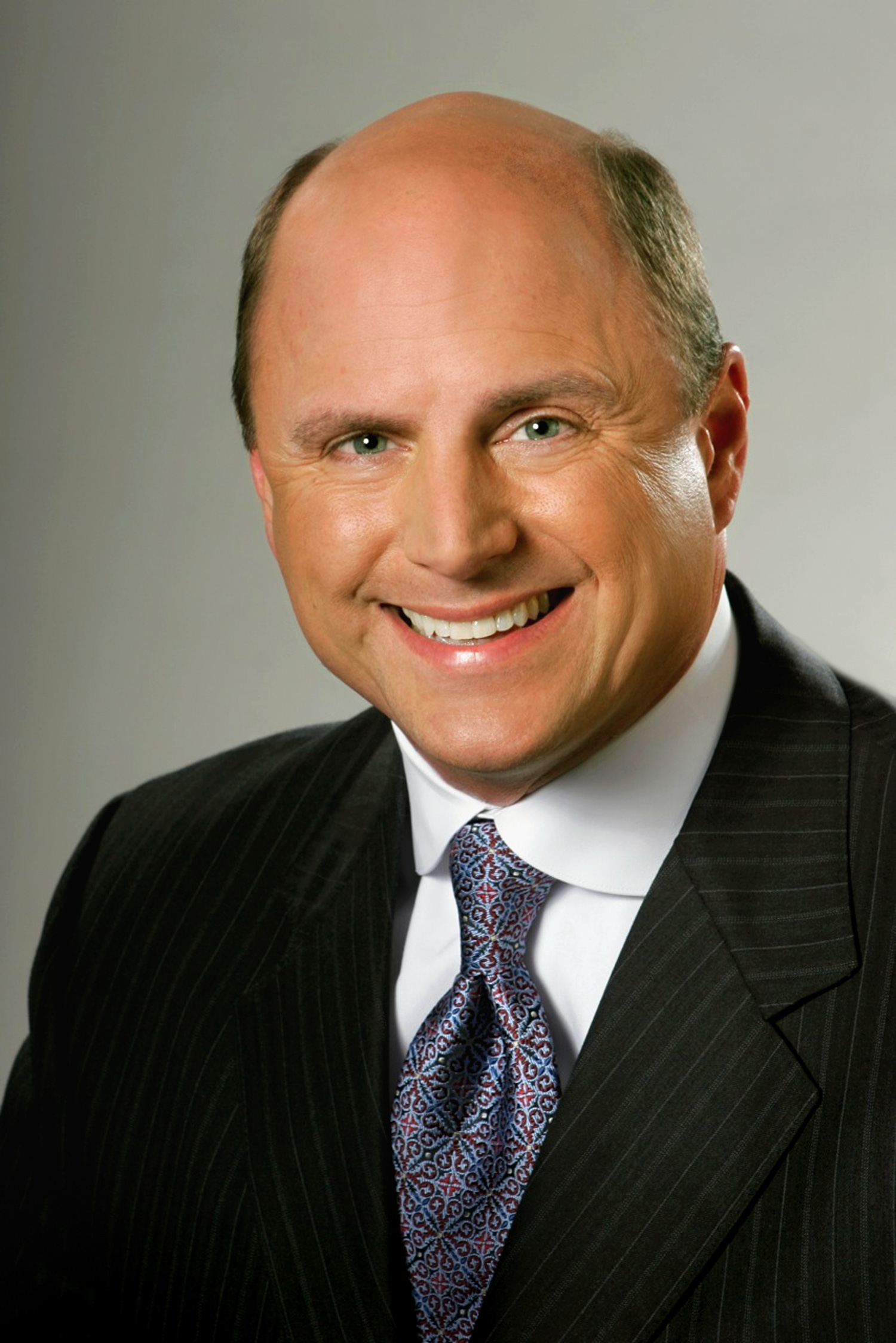
Greater Vision, one of the best male trios to hit the stage in the history of Southern Gospel, has been winning awards and traveling extensively since 1990. Even after 22 years, Gerald Wolfe, Rodney Griffin and Chris Allman continue to hone their craft and pursue superior quality in their music. Their history and experience, combined with continued achievements and new levels of excellence are propelling these artists to an increasing perspective of ministry and spiritual maturity.
In this first segment of the Greater Vision interview, the members talk about the history of Gospel music, the changes they’ve seen and what it means to be consistent in their music, faith and personal lives. They are continuously gaining a new and better vision on what it means to be a Christian artist in a society of change. After all, the members themselves were initiators of change when Gerald Wolfe assembled a singing group of three men in a quartet world.
Greater Vision broke the mold of the traditional-quartet-style of Southern Gospel, becoming one of the most popular male groups in the genre. They’ve always been well-received by radio and live audiences across the nation. Randall Christy, president of The Gospel Station Network, says, “Greater Vision is a tremendous group and has been a force in Gospel Music for a long time. Greater Vision is popular because of their great songs and great sound.  Gerald Wolfe and the group have really made an impact with their ministry in song, with some of the most requested songs on our radio network through the years.â€
Music director Bruce Edwards of 770AM Southern Gospel WCGW, says, “[Greater Vision provides] excellence in recording new material for radio, a great vocal blend, great song writing, powerful lyrics, and first class presentation of the gospel in concert. They have been a listener favorite here in Lexington and Central Kentucky for over 22 years with plenty of number one songs!†Top-charting songs and accolades from radio and other industry members have been numerous for this trio. Each Greater Vision recording seems destined to garner even more nominations and honors than the previous releases.
In 2011, Greater Vision released The Only Way recording, arranged by Lari Goss, which has produced several charting songs and a nomination for Album Of The Year as well as Song Of The Year, for “I Know A Man Who Canâ€. In 2012, the trio re-released their recording entitled Hymns of the Ages, remixed and remastered with the addition of Chris Allman’s beautiful tenor. Allman’s return to Greater Vision in 2010 brought the group full circle to their lineup of 15 years previous. He says there have been some changes in the industry since he first began with the group, the time away giving him perhaps a different perspective than most.

“[There have been] a lot of face changes, but then again thankfully a lot of familiar faces are still around and we need those you know,†says Allman. “The folks that hang in there make a way for the generation to come. Music-wise, there have been not a lot [of changes] stylistically I suppose. Some groups make changes but I suppose I could say the groups that tend to stick around stay with the same type of style. Even though the message never varies, we might try to say it a little different way here and there but we’re sticking with the same style.â€
Rodney Griffin, baritone with the group since 1993, concurs with Allman that Greater Vision has remained constant overall in their style, which has contributed to their longevity in the business. “What I’ve seen for 18 years here is a wonderful place for consistency. It’s a blessing. Some groups, you never know from album to album what they’re going to sound like, or their style of song. But hopefully we’ve stayed true to the traditional style that we started with and therefore we haven’t lost too many listeners. We hope to have gained some and lost none. It’s total fulfilment for me.â€
Gerald Wolfe is a proponent of the traditional style of Gospel music and has successfully piloted the group since its origins. Wolfe is a tremendous lead singer and pianist who had already made his mark in Southern Gospel with The Cathedrals and the Dumplin Valley Boys. His distinctive vocal style is unparalleled in the industry, as is his integrity and spiritual depth. His unique personality has garnered him many fans as well as close friends in the industry, including popular family group, The Whisnants.
Susan Whisnant, one of Southern Gospel’s leading female vocalists, comments on another side of Gerald Wolfe, one that most fans may not see. “Gerald has always been a  hero of mine, so to speak.  I watched him when he started singing with The Cathedrals and now to call him a friend is a true blessing. Gerald is very talented; we all know that. But he is one of the smartest and funniest guys I’ve ever known.  He’s also a great mentor to me and Jeff.  We’ve been in their home and Donna, his wife, is one of the most precious ladies I’ve ever met.  We love them and are thankful to call them our friends.â€
Another friend of Greater Vision is Clayton Inman, lead singer with the award-winning Triumphant Quartet. Inman shares, “One of the greatest compliments one can give to describe another is that they are consistent. This could be used to describe Greater Vision. Their solid sound, lyrically strong songs, and being the same people every day are what make them great. Their sound is unique, in that when you hear them sing on the radio, you know it’s Greater Vision. Chemistry is also something that can make or break a group. It’s obvious Greater Vision is loaded with that as well. They have been with us a long time and we’ll expect many more years of great music from this talented group.â€
Consistency and chemistry is a terrific combination in a musical trio that has already left their mark in the Gospel music industry. In a world of gray areas, this trio stands out with their black-and-white approach to honesty and the Word of God. Wolfe comments that being the same every day and having an unvarying walk in all areas of life is a positive attribute in an industry of change.
“In a word, I hope [I will be remembered as] ‘consistent’,†says Wolfe. “Because if you ever go to a good funeral, if there is such a thing, which there is, you sit there and listen to people get up and talk about a person and all the things they loved about them, it all boils down to that one word, ‘consistency’. They don’t ever get up and say, ‘I tell you what I liked about that guy, every time I saw him he was different’. I’ve never heard that said at a funeral. What they say is, ‘I’ll tell you what I liked about that guy, he was always the same.’
Wolfe continues, “So if I could just pick a word it would be consistent, and the reason is I got to thinking several years ago about what I like and why I like it, and here’s what I came up with. The reason McDonald’s (and I’m not endorsing McDonalds) sells more hamburgers in the world than anyone else is because they always taste the same. They don’t ever mention anyone else in their advertising, they don’t ever say ‘we’re better than Burger King, we’re better than Arby’s,’ they never compare themselves with anybody because they’re Number One. They don’t criticize others; they don’t even talk about hamburgers in their commercials. They talk about, ‘We’re your kind of place, bring your family,’ or whatever. So, they’re consistent.†Whether it’s Cracker Barrel or Coke Zero, there are things Wolfe enjoys because he says he knows he will always get the same quality. “What has made number-one companies in the world successful is their consistency.â€
“I think what made the Cathedral Quartet successful is not because they didn’t reach out there sometimes,†Wolfe states. “They recorded with the London Symphony, then they did an accappella album, then they did just a rhythm track album. But still, it was their consistency. When you saw them you knew what you were going to get. You knew George was going to be funny, Glen was going to be Glen, and [there would be] great singing. You knew what you were going to get. You didn’t have to guess. So they built on that over 37 years. It was consistency.â€
Wolfe concludes, “So when I’m gone, and you go back to this interview, I hope you’ll be able to say, ‘You know what, he was consistent’. Because that’s what I want to say about you.†Still he says, changes in how we do what we do can be beneficial, as long as our reasons for what we do remain constant. Gerald Wolfe describes changes he has seen from his perspective of over 30 years in full-time Christian music.

“I’m the old generation [in Gospel music] now, you know,†laughs Wolfe. “Mark Trammell, myself, Scott Fowler; a few of us have been around a long time. There are a lot of new folks, which is a good thing. We always need new folks, especially good new ones. There are a lot of good new ones coming along, like Promise and others that are going to do well. That’s one of the changes I see.â€
“Our music is always [changing],†Wolfe remarks. “You can go back and listen to when this kind of music started, although there were no recordings in the first couple decades, but if you listen from the late 1920’s on, like the Chuck Wagon Gang and the Speer Family and the LeFevres and on, it’s always been an evolving type of music. The kind of music that people call traditional gospel music today is not what they were singing back in the 1950’s. So there is always room [for change in] Southern Gospel – and I really hate the term southern gospel. But Southern Gospel is a huge umbrella, so there are all kinds of different styles. Sometimes that’s a great thing, sometimes it’s not, because people don’t really know how to classify.â€
Wolfe continues, “When you go in and listen to a concert now, you will hear everything from bluegrass to country-influenced, to gospel, a little bit of jazz or pop. Or you hear what I call traditional quartet singing which is always four-part, and then you have what we do which is ‘trio’ which is kind of more ‘church-ey’, an inspirational type of music. I like a little bit of all of it, but it’s getting harder and harder to pinpoint when you say ‘I’m going to the National Quartet Convention’; it’s certainly not just a ‘quartet convention’ anymore.â€
When he comments about the music he sings, Gerald Wolfe prefers terms other than Southern Gospel. Wolfe says, “I call it Gospel or Christian music. When somebody asks me what I do, I tell them ‘I sing Christian music’, because Southern Gospel was a term that was made up back in like 1978 by the board of the Gospel Music Association and Nashville to distinguish it from Black Gospel. Before that it was just ‘Gospel’. We had Gospel and Black Gospel, and they wanted to get away from the term ‘Black Gospel’ because the black community was starting to use the term African-American to get away from the ‘black’ terminology. So they changed ‘Black Gospel’ to just plain ‘Gospel’, and then they had to come up with something different for our genre, so they came up with the term ‘Southern Gospel’.â€
Wolfe continues, “It sounded good at the time but the truth is, our music is not just popular in the South, and it did not just necessarily come from the South. The first singing convention was in Philadelphia, Pennsylvania, more than 130 years ago, where they started the ‘shape-note’ craze. It started in Philadelphia, it didn’t start in the south, and so that’s why I don’t like it.â€
“It pigeon-holes us in peoples’ minds to being either southern-sounding, country-sounding, bluegrass-sounding, or hokey, instead of what it is. Our music has a broad range of tastes, so I just call it Christian music or Gospel Music. If somebody tries to pinpoint it, I just say it’s traditional; it’s what you would hear in your church. Well, not necessarily in the church anymore.â€
“We go overseas and over there they call it ‘Southern Gospel’ because of the Gaither videos. That’s how they got to know us in Europe. We go there and the people love it and they pack those places. The first time we went to Belfast, Ireland, we got 1200 people on a Saturday night, which is amazing for us. The only way they knew us was because they had seen us on a Gaither video and they had seen us on Dr Charles Stanley’s television program.†As popular and talented as Greater Vision is, even this trio has seen a drop in the average concert attendance. This was specifically notable at the 2011 National Quartet Convention (NQC) in Louisville, Kentucky.
Gerald Wolfe comments on decrease in Gospel concert ticket sales: “I think it’s a combination of a few things. Truthfully, in 2010 the [NQC] Exhibit Hall was sold out. [In 2011] it was not, so to me there are two things that caused that. One thing is certainly the economy. I know that in 2011, especially in August, people were so uncertain about the debt limit increase and all those factors playing into the economy and the unemployment numbers going up weekly, that people were holding on to their money and not planning things. It’s hard to come up here and spend $1000 on a hotel for a week and buy all these tickets, so people held on.â€
However, Wolfe comments that there was a silver lining to this cloud. “So in 2011, we saw an increase in the ‘walk ups’, people waiting until the last minute and walking up and buying a ticket at the door. It was unusual. [There was some] diminishing in the exhibit space, although it was not down as much as people seem to think it was, it was actually down about 40 booth spaces, out of the over 500.â€

“I think that was the result of two things,†continues Wolfe. “One is the economy; groups don’t necessarily have the money to spend, it’s hard, and when the economy goes down all the groups suffer too. Another thing is, we cut back the number of artists on the stage in 2011 so some of those artists were not there. In some ways, I think that was a good thing, to try to shorten the program and to give some artists more time as we always get complaints about that. On the other hand it was not a good thing as we were missing some of the artists that we got used to seeing on the platform.â€
“So over the next several months I think you will see a little bit of a revamp of that, as we revisit it when we have our meetings, and I think you’re going to see some positive changes in that area.†Gerald Wolfe was elected to the National Quartet Convention Board of Directors in 2005. The NQC Board, along with its Advisory Council, coordinates the annual event, performing all strategic planning and event management necessary to present this massive undertaking.
Each member of Greater Vision is working toward a positive change in their world, whether it is through excellence in recording or performance, the songwriting of both Chris Allman and Rodney Griffin, or through the industry tasks undertaken by Gerald Wolfe. In all this activity, can these artists have time for home and family? Stayed tuned for Part Two, in which the members talk about their personal lives, loves and relationships, and explain more fully their increasing perspective on what it means to have Greater Vision.
First published in SGNScoops August 2012. http://www.sgnscoops.com/
All photographs courtesy of Greater Vision.
For more information:
Greater Vision http://greatervisionmusic.com/ and http://www.facebook.com/greatervisionmusic
Susan Whisnant, The Whisnants http://www.whisnants.com/ and http://www.facebook.com/pages/The-Whisnants/231035291988
Clayton Inman, Triumphant Quartet http://www.triumphantquartet.com/ and http://www.facebook.com/groups/42658119618/
Randall Christy, President, The Gospel Station Network. http://www.thegospelstation.com/dyn/index.php
Bruce Edwards, Music Director at 770AM Southern Gospel WCGW http://www.wcgwam.com/
